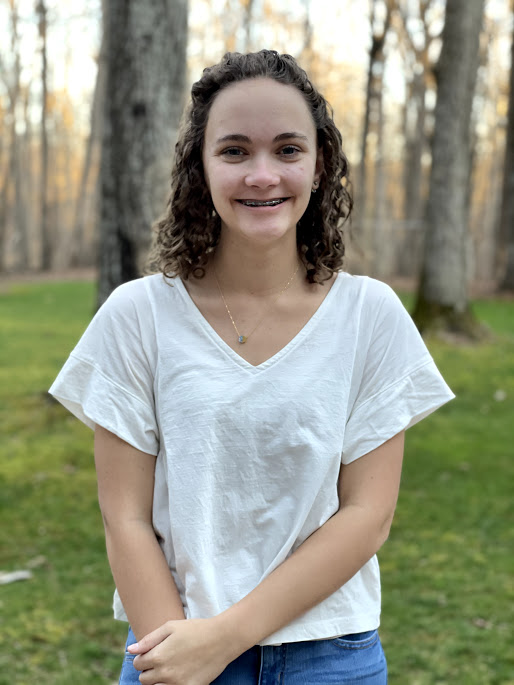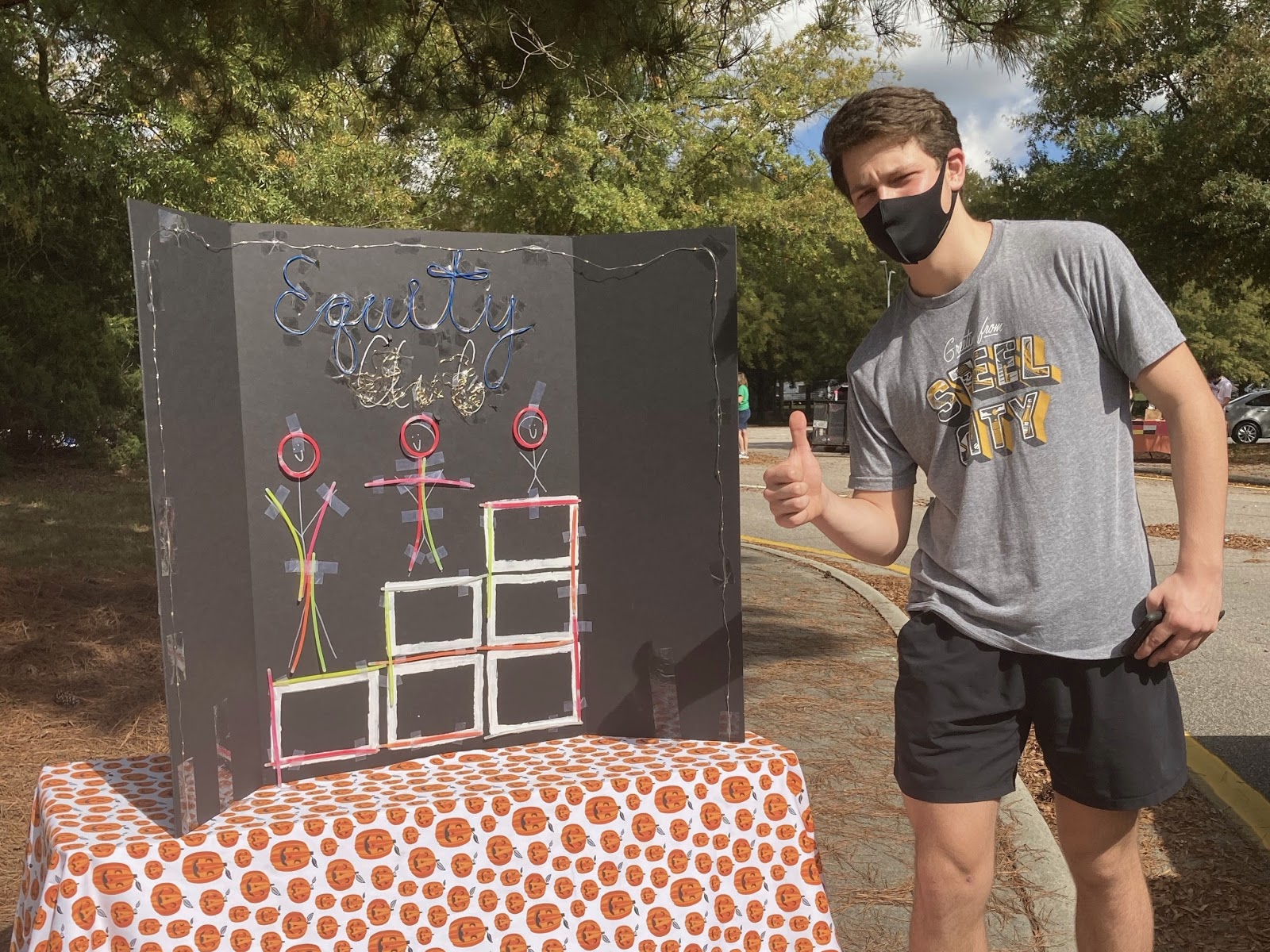Beckett London shows off Equity Club’s Fall Fest Display. They used lights and glow sticks to fit the theme of “Neon Out.” (Photo Courtesy of Stella Davis)
Merriam Webster defines equity as “justice according to natural law or right, specifically: freedom from bias or favoritism.” At Leesville, there is no doubt that inequalities exist. The LRHS Equity Club is working to name and call out these inequalities, then find solutions for them.
The club holds its name for a reason. Equity and equality are two different ideas. “Equality is providing equal support and resources to everyone. Equity is providing… support and resources to those who need it [most],” said Stella Davis, Equity Club member, via Google Docs.
The difference between the two may seem small, but equity is taking the extra step to give additional help to those who are disadvantaged or undersupported.
“Equity is providing various levels of support and assistance depending on specific needs or abilities,” said Beckett London, Equity Club Member, via email. Often, inequalities exist because of societal differences like race or gender — equity is giving people with these disadvantages a boost, in order to truly create equal opportunities for all people.
Here’s a graphic that does a good job of portraying the key differences between equity and equality
About the club
“Equity Club is a team whose goal is to create a supportive, inclusive environment for everyone in the LRHS community,” wrote Davis. The club works to “build a supportive, friendly atmosphere.”
Additionally, all members work together towards common goals: “working to address injustices, speaking up when they see hate, engaging in conversations with a diverse group of peers, and actively working to make sure LRHS is an open and inclusive community,” said Jennifer Ballew, Equity Club Advisor, via email. Overall, they want to create and open doors for conversations within Leesville, in order to begin to rectify the inequalities that exist there.
All those involved want to “create a more equitable environment [for] all students in our community,” wrote London.
Especially in today’s society, Equity Club holds a major role. “I was motivated by current events and social injustice to contribute to working towards an inclusive community,” wrote Davis. “[T]he last several months have really brought light many injustices and inequities that still exist,” wrote London.
Leesville is not spared of these. Starting in our school is a huge step in the right direction. The club wants to call out these inequalities at LRHS in order to reflect the change they want to see on a much larger scale.
Stamped: the book club
The biggest event the Equity Club is promoting is their community book club, set to read Stamped, by Ibram X. Kendi and Jason Reynolds.
Stamped primarily draws connections between past racism and present injustice. “It takes you on a race journey from then to now, shows you why we feel how we feel, and why the poison of racism lingers. It also proves that while racist ideas have always been easy to fabricate and distribute, they can also be discredited.” (Goodreads)
“In five sections, Reynolds’s conversational text discusses the influential figures, movements, and events that have propagated racist ideas,” wrote Publishers Weekly. The structure of this book explains the people and ideas that shape racism, in a way that is easy to understand.
“The community book club was actually presented to us by the middle school’s equity team,” said Sarah Cade, Equity Club advisor, via email. “The club is open to anybody associated with the Leesville community,” wrote Cade.
Elementary, middle, and high school parents, teachers, and students are able to join.
The book club will meet five times between October and March to discuss each section of Stamped.
Stamped was not a random selection. Rather, it “is accessible for a wide range of readers, as it was designed for a 7th-grade reading level,” wrote Cade. This allows participants of all ages to join and engage. Although it presents hard topics, it is designed to allow all students to participate.
“Terms like ‘segregationist,’ ‘integrationist’ and ‘anti-racist’ are defined in direct, accessible language, becoming real tools for a reader to take from the book,” wrote the New York Times. They continue on to explain how dramatic font changes and white space in the book give the reader “time and visual space” to process these ideas.
Additionally, this book helps further the club’s goal of addressing injustice. “It is a fantastic introduction into the history of systemic inequities and does a good job of breaking those down,” wrote Cade.
“Our goal with the community book club is to begin to open the conversation and pave a pathway for students in our community [to] have difficult/courageous dialogue in order to create a more equitable Leesville,” wrote Cade. “In order to disrupt inequities, we first have to name them,” and Stamped is one big step in that direction.

Hi! My name is Ellie and I am the editor in chief for The Mycenaean. I play soccer at NCFC and go to The Summit Church!


Leave a Reply